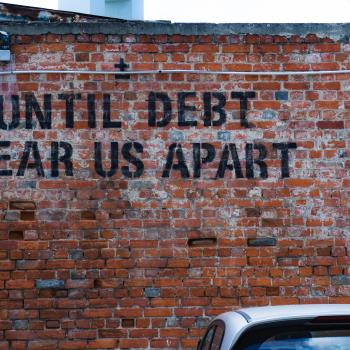When people get a little too deep in debt, thoughts of debt consolidation pop up. It’s a fairly simple way to deal with the financial sins of your past.
Unfortunately, debt consolidation is often less of a solution and more of an enabler to people who have too much debt. It’s often the first step in a debt stacking strategy that doesn’t usually end well.
Is a Credit Card Consolidation Loan Ever a Good Idea?
Debt consolidation usually leads to more credit use
In the typical debt consolidation scenario, the debtor consolidates say, four credit card debts into a single credit line with a lower interest rate. The idea is to roll all four payments into a single one that’s lower than the combination of payments you were making before. The lower interest rate means less money is going toward interest, more toward principal, making for a faster payoff of the consolidation loan. Looks like a plan, doesn’t it?
Unfortunately, most plans work better on paper than they do in reality, and debt consolidation is no exception to the rule.
A few months after the consolidation, a need will arise to use a credit card; the card will be swiped and a new balance incurred. A few weeks later, another credit card use will come into being, and the new balance will grow higher. Eventually, that card will be tapped out, and you’ll turn to yet another card. Soon you’ll have two or three credit cards with balances all while you’re still paying off the consolidation account. After a year or two, you’re deeper in debt than you were before the consolidation.
The consolidation didn’t cure you’re credit problems—it just made your debt easier to live with. That leads to even more debt.
The last step before bankruptcy
Credit card use, followed by debt consolidation, more credit card use and yet another consolidation is a pattern that typically precedes bankruptcy. As well intentioned as the consolidations are, they ultimately lead to more debt until the point is reached where the debt can no longer be paid by the borrower.
Debt consolidation must be approached with the seriousness of a bankruptcy filing because that could be what comes next. You must accept that the consolidation itself is evidence that you’re going too deep into debt, then commit to getting out of it by all means necessary.
Learning to live without credit
Unless you come to a point where you can live comfortably on the income you earn, debt consolidation is only a delay on the way to financial disaster. That will mean either increasing your income or lowering your expenses or some combination of both until you reach the point where you can live on your income and not have to tap credit cards.
Debt consolidation will make no improvement in your finances until you can learn to live without using credit. No matter how sweet your consolidation may be, adding more credit after the consolidation will make the problem worse.
Debt consolidation’s proper use
If you’re even considering debt consolidation, understand and accept that you’ve reached a critical point in your debt situation. The whole reason you want or need to do a consolidation is because the combination of your debts is becoming unmanageable. Take that as a warning sign!
You now have a chance to fix your finances—one that may not come again—and you must commit to making it happen.
Debt consolidation seldom works by itself, but it can work if you use it in combination with other efforts. Those efforts should include:
- As discussed above, don’t do a consolidation loan until you reach a point where you can live without credit
- Once you do the consolidation, actively work to pay it off early
- Delay or reduce major purposes during the consolidation loan term—if you need a new car, get a used one that you won’t need to take a new loan for
- Learn to do without—your commitment to pay off the consolidation should be greater than your need for new stuff or new adventures
- Learn to save up to buy what you want and need
- By doing all of the above, you’ll learn to live by “cash on the barrel”—keep doing that after the consolidation is paid, that way you’ll never be in a position where you’ll need to do it again.
Debt consolidation is about cleaning up yesterday’s debt mess, and like all messes, you don’t need to be starting up new ones while you’re still cleaning up the old one. Approach debt consolidation with that thinking and you’ll have a fighting chance to make it work.
Have you ever done a debt consolidation? Did it get you out of debt—or did it lead you into deeper debt?












